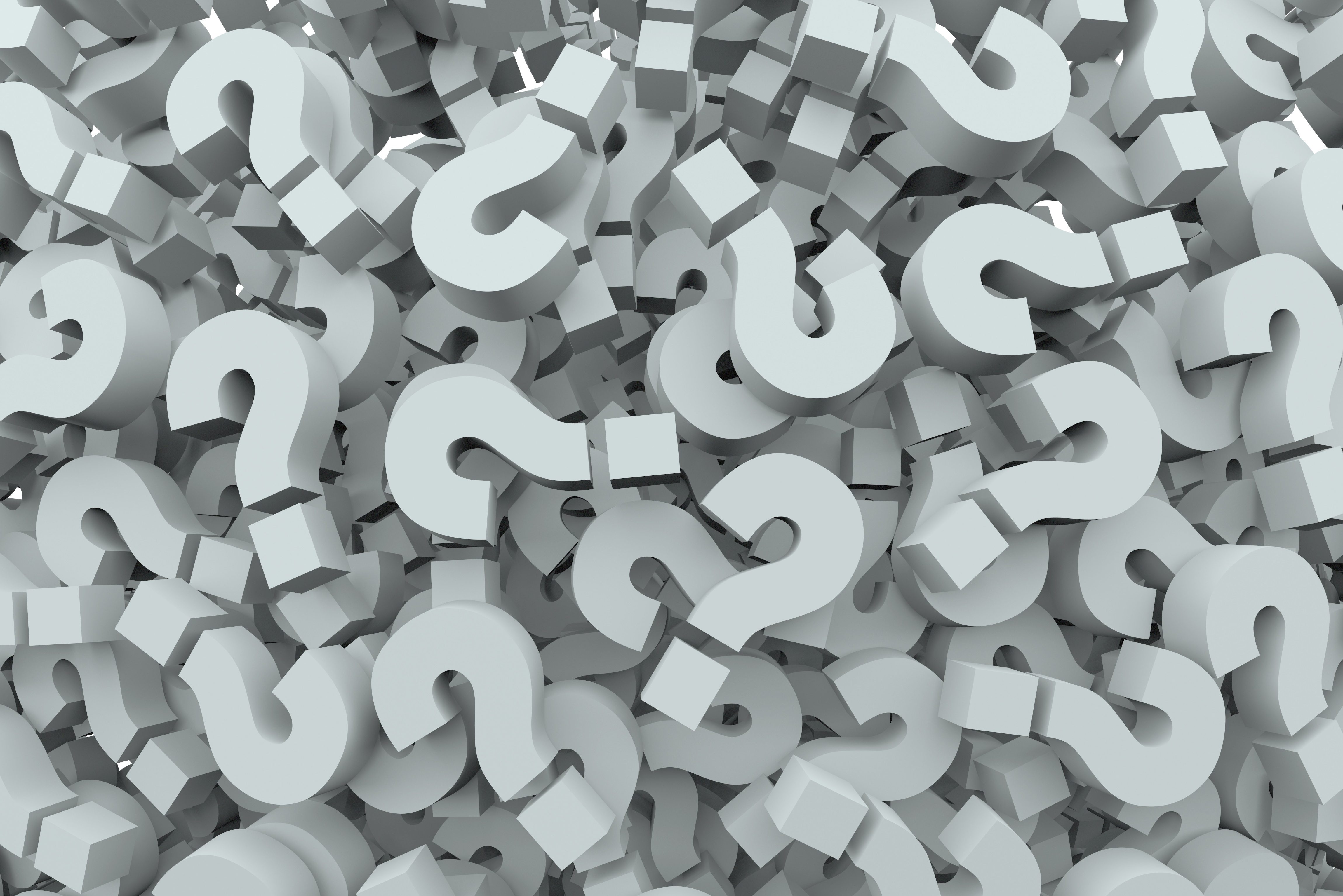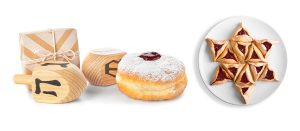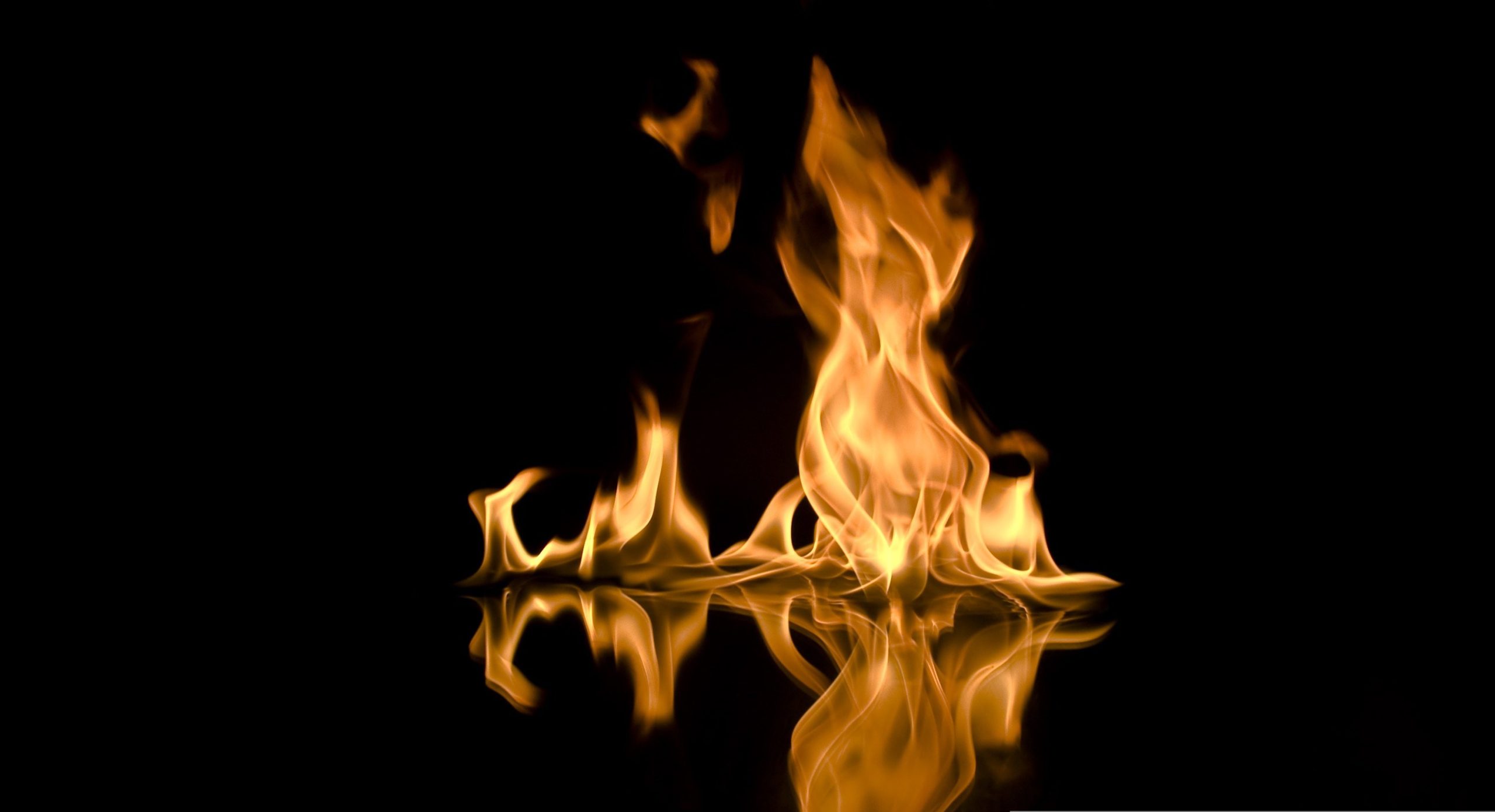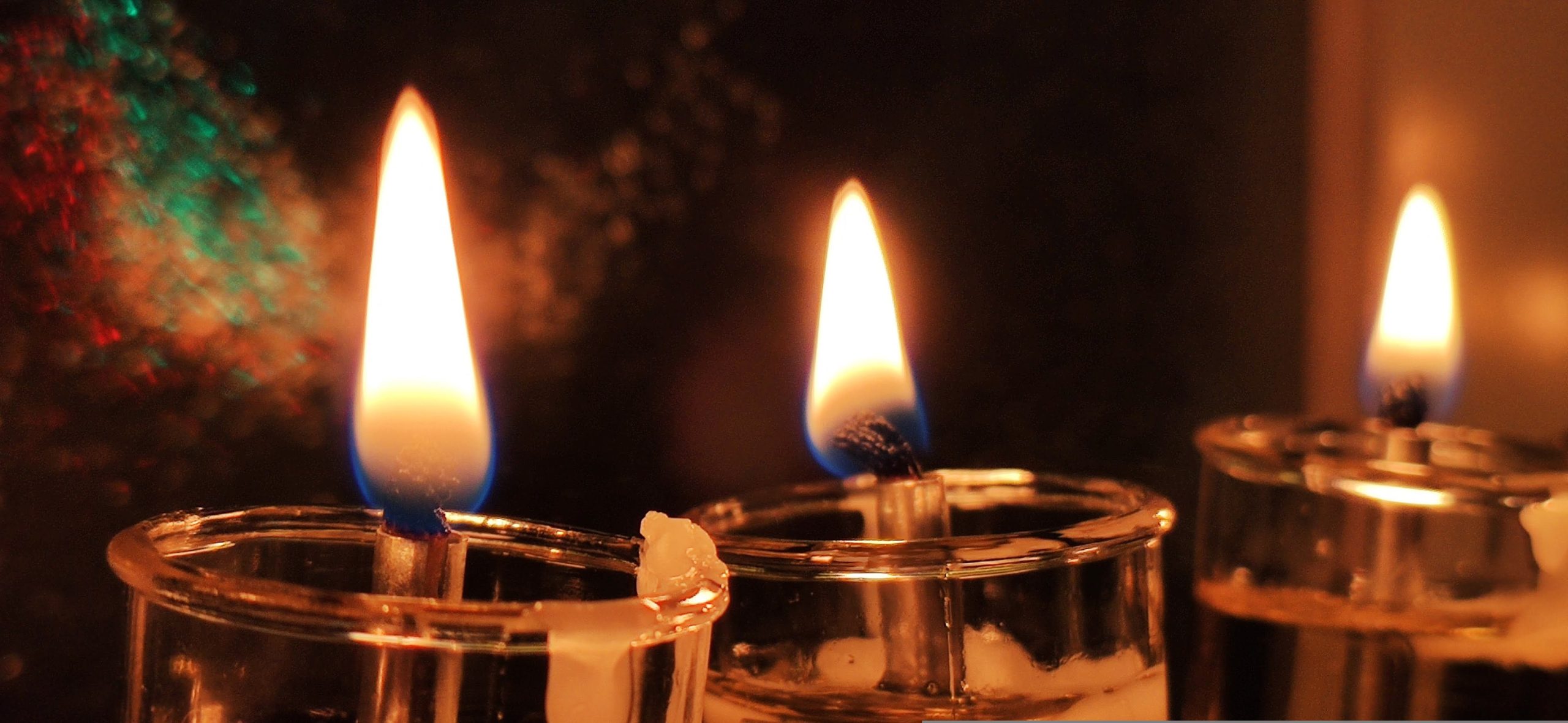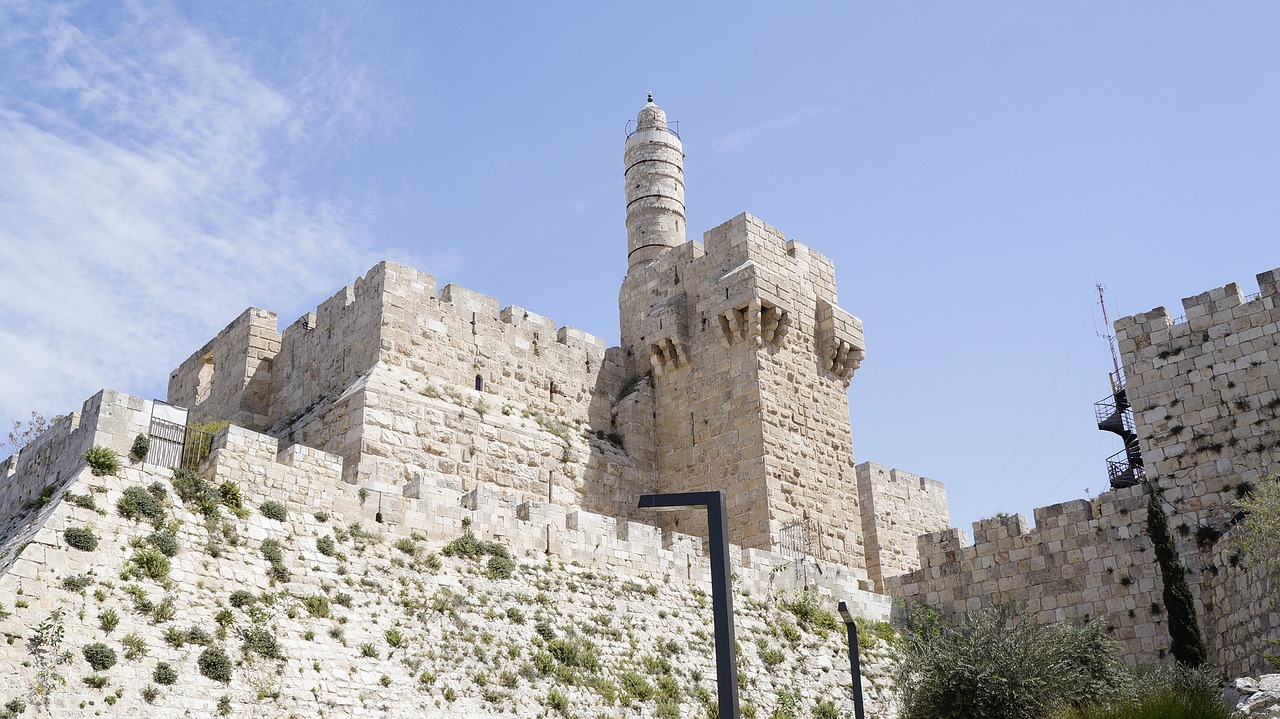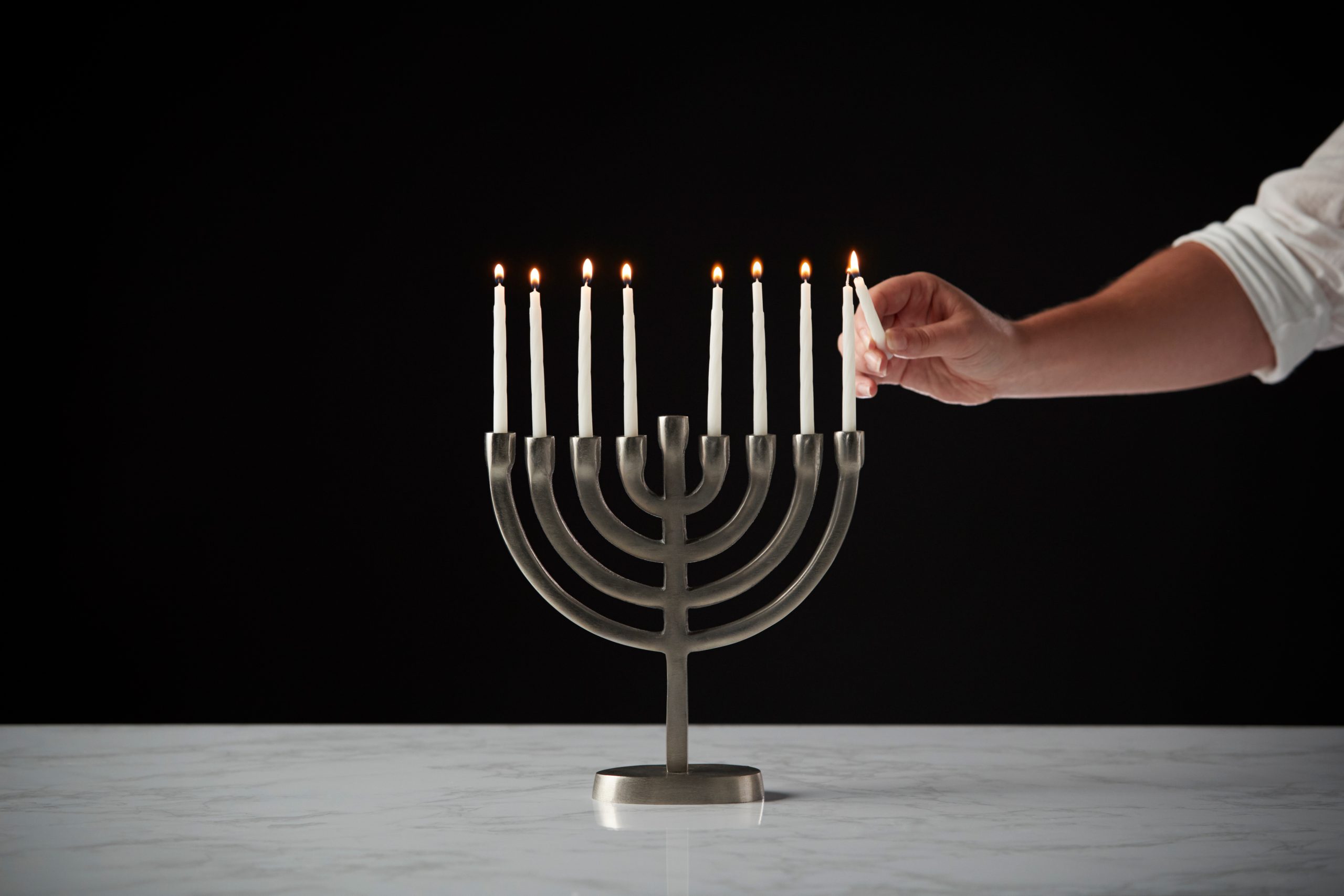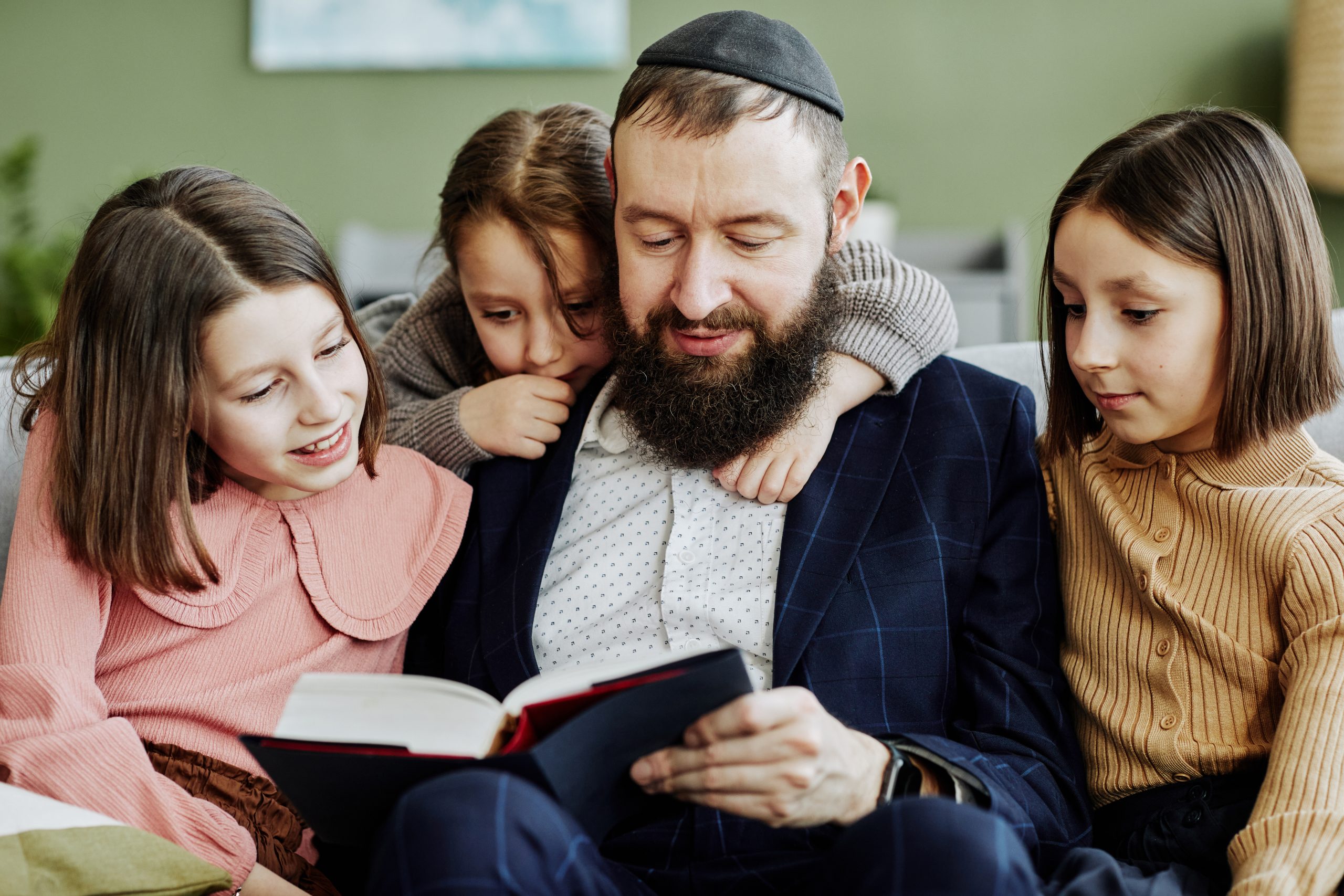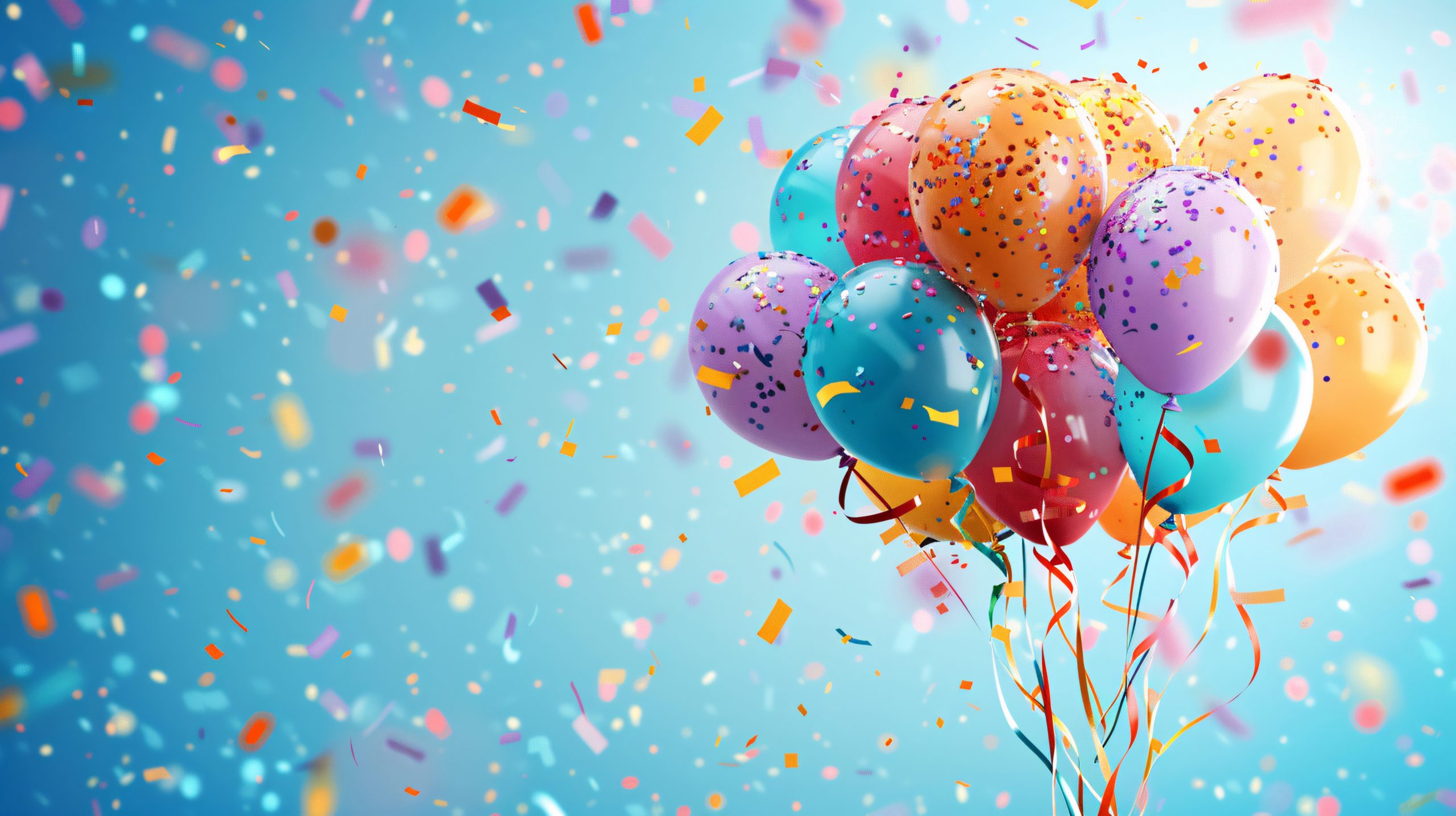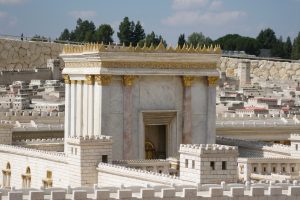 What is Chanukah, you ask? Well, during the period of the second Temple, the Syrian-Greek kingdom issued decrees against the Jews in an attempt to cause them to assimilate culturally. They refused to allow the Jewish people to observe the Torah and to follow the commandments. They disrupted the Sanctuary of the Temple and rendered it ritually impure. G-d sent redemption through a rebellion led by the Chasmonaim (Hasmoneans), a family of kohanim (priests) popularly referred to as the Maccabees. Following the overthrow of the invaders, the Jews regained sovereignty, which they retain for more than 200 years.
What is Chanukah, you ask? Well, during the period of the second Temple, the Syrian-Greek kingdom issued decrees against the Jews in an attempt to cause them to assimilate culturally. They refused to allow the Jewish people to observe the Torah and to follow the commandments. They disrupted the Sanctuary of the Temple and rendered it ritually impure. G-d sent redemption through a rebellion led by the Chasmonaim (Hasmoneans), a family of kohanim (priests) popularly referred to as the Maccabees. Following the overthrow of the invaders, the Jews regained sovereignty, which they retain for more than 200 years.
After overcoming the Syrian-Greeks, the Jews entered the Sanctuary the twenty-fifth day of the month of Kislev. They found only a single cruse of pure oil in the Temple. This was only enough oil to keep the Menorah burning for a single day. Miraculously, the oil lasted for eight days, until a new supply of oil could be produced.
The Sages of that generation therefore decreed that the eight-day period beginning on 25 Kislev, should be should be observed as days of rejoicing and of praise to G-d. Candles are lit each evening to commemorate the miracle.
(Based on Mishneh Torah, Megillah v’Chanukah 3:1-3)
So It’s About the Oil?
 Not at all! In fact, that is a very common misconception. We do light the Chanukah menorah (also known as a “chanukiyah”) in commemoration of the miracle of the oil but the holiday itself celebrates the victory over forces that were trying to impose cultural assimilation on the Jews. Al HaNissim, the prayer recited throughout the holiday, spells it out for us:
Not at all! In fact, that is a very common misconception. We do light the Chanukah menorah (also known as a “chanukiyah”) in commemoration of the miracle of the oil but the holiday itself celebrates the victory over forces that were trying to impose cultural assimilation on the Jews. Al HaNissim, the prayer recited throughout the holiday, spells it out for us:
“…when the evil Syrian-Greek regime arose against Your people Israel in an attempt to make them forget Your Torah and violate Your decrees, You, in Your great mercy, stood by them in the time of their distress. You waged battle for them, You defended their rights, and You avenged the wrongs that had been done to them. You delivered the strong into the hands of the weak, the many into the hands of the few, the impure into the hands of the pure, the evil into the hands of the righteous, and the sinful into the hands of those who occupy themselves with Your Torah…”
Not a word about the oil!
What Does “Chanukah” Mean, Anyway?
 Simply put, Chanukah means “dedication.” What was dedicated? The altar of the Temple. (It’s actually in the words to the Chanukah song Ma’oz Tzur: “chanukas hamizbeach…” That means “the dedication of the altar.”) The altar had been defiled by the non-kosher animals sacrificed by the invading forces, so the Maccabees replaced the altar (see Talmud Avodah Zarah 52b).
Simply put, Chanukah means “dedication.” What was dedicated? The altar of the Temple. (It’s actually in the words to the Chanukah song Ma’oz Tzur: “chanukas hamizbeach…” That means “the dedication of the altar.”) The altar had been defiled by the non-kosher animals sacrificed by the invading forces, so the Maccabees replaced the altar (see Talmud Avodah Zarah 52b).
In another sense, Chanukah can be seen as “chanu k”h” – “they rested on the 25th.” This would refer to the respite from battle that the warriors enjoyed on the 25th day of Kislev after defeating their enemies.
The Difference
On Chanukah, we light candles and recite Hallel (Psalms of praise). On Purim, we eat a festive meal and give gifts of food to our friends. Why are the two holidays observed in such different fashions?
Each celebration reflects the unique nature of the threat involved. Purim was about a physical threat – Haman wanted to exterminate the Jews – so the celebration is more physical in nature. Chanukah involved a spiritual threat – the forced assimilation of Jews into Hellenism. Accordingly, we celebrate with light and song of praise, which are spiritual in nature.
Why Do We Recite a Bracha?
The blessing says that G-d “commanded us to kindle the Chanukah lights” but that obligation is found nowhere in the Torah, nor elsewhere in Tanach (the Jewish Bible). How can we recite a blessing that contains an untruth?
Lighting the Chanukah candles is so important that it’s considered a “rabbinic mitzvah” - one of only seven rabbinic laws so classified. (Others include hearing the Megillah read on Purim, ritually washing hands before eating bread, and lighting candles for Shabbat and holidays.) On each of these, a blessing is recited. The reason is because the Torah commands us to follow rabbinic laws. By lighting the Chanukah lamp, we are obeying the Torah’s directive to follow rabbinic legislation. Nevertheless, the sages only instituted brachot to be said on a very small number of especially significant acts.
What’s a Maccabee?
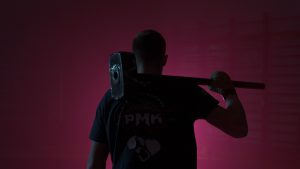 Matisyahu, a prominent kohein (priest), had five sons who led the rebellion: Shimon, Yochanan, Yehuda, Elazar and Yonasan. Yehuda – Judah in English – was a fierce warrior known as “the Maccabee” from the Aramaic word for a hammer. By extension, the entire group of brothers became known as “the Maccabees.”
Matisyahu, a prominent kohein (priest), had five sons who led the rebellion: Shimon, Yochanan, Yehuda, Elazar and Yonasan. Yehuda – Judah in English – was a fierce warrior known as “the Maccabee” from the Aramaic word for a hammer. By extension, the entire group of brothers became known as “the Maccabees.”
As with many things in Judaism, there are many layers to this name. In Hebrew, the word Maccabee is also an acronym for “mi kamocha ba’eilim Hashem,” – “who among the mighty is like You, G-d?” (Exodus 15:11). The name therefore reflects not only the Maccabees’ prowess in battle, but their spiritual might as well.
Why Isn’t Chanukah Seven Days Long?
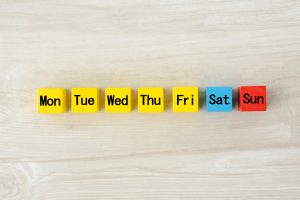 A day’s worth of oil lasting for eight days is certainly miraculous – on days two through eight! The oil lasting the first day is pretty normal, so why is the first day commemorated? The commentators have various explanations for how this might be. For example, the Maccabees might have divided the oil into eight parts so that they could use a little each day. In such case, even lasting the first day would have been a miracle. Another explanation is that they might have poured all the oil into the lamps on the first day, only to find that the cruse from which they poured it was still full. There are many other possible explanations. What all agree to, however, was that the first day was indeed part of the miracle.
A day’s worth of oil lasting for eight days is certainly miraculous – on days two through eight! The oil lasting the first day is pretty normal, so why is the first day commemorated? The commentators have various explanations for how this might be. For example, the Maccabees might have divided the oil into eight parts so that they could use a little each day. In such case, even lasting the first day would have been a miracle. Another explanation is that they might have poured all the oil into the lamps on the first day, only to find that the cruse from which they poured it was still full. There are many other possible explanations. What all agree to, however, was that the first day was indeed part of the miracle.
Where Can I Read About Chanukah in the Bible?
 Chanukah occurred in the Second Temple era, after prophecy had ceased and the Bible canon was closed. Nevertheless, there are allusions to Chanukah in the Torah. For example, in parshas Emor, the Torah discusses all the holidays, juxtaposing the holiday of Succos with the lighting of the Menorah (Leviticus chapters 23-24). This alludes to the holiday involving the Menorah, which follows the holiday of Succos. Another allusion is that the twenty-fifth place the Jews camped was Chasmonah (Numbers 33:29). Chanukah begins on the twenty-fifth day of the month of Kislev and the Maccabees were Chashmonaim.
Chanukah occurred in the Second Temple era, after prophecy had ceased and the Bible canon was closed. Nevertheless, there are allusions to Chanukah in the Torah. For example, in parshas Emor, the Torah discusses all the holidays, juxtaposing the holiday of Succos with the lighting of the Menorah (Leviticus chapters 23-24). This alludes to the holiday involving the Menorah, which follows the holiday of Succos. Another allusion is that the twenty-fifth place the Jews camped was Chasmonah (Numbers 33:29). Chanukah begins on the twenty-fifth day of the month of Kislev and the Maccabees were Chashmonaim.
The Books of the Prophets also allude to Chanukah. In the fourth chapter of Zechariah, we are given a vision of future events involving olive oil and the Menorah. In the eighth chapter of Daniel, the prophet speaks of an arrogant Greek king, whom many understand to be Antiochus of the Chanukah story.
So Where Can I Read About Chanukah?
 The bullet points of the Chanukah story are recounted in the Talmud in tractate Shabbos (21b). The story of Chana, whose seven sons allowed themselves to be martyred rather than submit to idolatry, is retold in tractate Gittin (57b). The circumstances that led Yehudis to behead the Syrian-Greek general Holofernes are referenced in tractate Kesubos (3b). All of these stories are told in greater detail in the Midrash.
The bullet points of the Chanukah story are recounted in the Talmud in tractate Shabbos (21b). The story of Chana, whose seven sons allowed themselves to be martyred rather than submit to idolatry, is retold in tractate Gittin (57b). The circumstances that led Yehudis to behead the Syrian-Greek general Holofernes are referenced in tractate Kesubos (3b). All of these stories are told in greater detail in the Midrash.
The full story of Chanukah is told in a work called Megillas Antiochus, which dates to the second century. There are also “Books of the Maccabees” in the Apocrypha (which we do not accept as Bible canon). Josephus also discusses Chanukah at some length.
How Do I Light a Menorah?
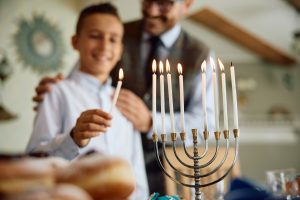 The Chanukah menorah, or chanukiah, may be lit with either olive oil or wax candles. On the first night, one candle is inserted on the right-hand side of the menorah. On each night, an additional candle is added to its left, so there would be two candles on the second night, three on the third, etc. There is also a “helper” candle called a shamash, which should be placed higher than the others so that it is evident that it is not one of the night’s candles. On each night, the shamash candle is lit and the brachos of l'hadlik ner shel Chanukah (the mitzvah to light the menorah) and she'asa nissim (that G-d performed miracles for our ancestors) are recited. On the first night only, the bracha of shehechiyanu (that G-d enabled us to reach this occasion) is also recited. After reciting the blessings, the candles are lit from left to right, starting with the newest candle first.
The Chanukah menorah, or chanukiah, may be lit with either olive oil or wax candles. On the first night, one candle is inserted on the right-hand side of the menorah. On each night, an additional candle is added to its left, so there would be two candles on the second night, three on the third, etc. There is also a “helper” candle called a shamash, which should be placed higher than the others so that it is evident that it is not one of the night’s candles. On each night, the shamash candle is lit and the brachos of l'hadlik ner shel Chanukah (the mitzvah to light the menorah) and she'asa nissim (that G-d performed miracles for our ancestors) are recited. On the first night only, the bracha of shehechiyanu (that G-d enabled us to reach this occasion) is also recited. After reciting the blessings, the candles are lit from left to right, starting with the newest candle first.
The Chanukah lights are lit solely for the sake of the mitzvah. They may not be used to read or for any other purpose – this is why we have a shamash! Therefore, if you need a fire for any reason (such as to soften the bottom of a candle to make it stay in place), you must use the shamash and not one of the other candles.
Why Do We Give Presents?
 Many people think that giving presents is a modern practice, instituted solely to keep our kids from feeling bad while their non-Jewish peers are being showered with holiday presents. Actually, giving gifts of money – “Chanukah gelt” - is an ancient tradition. There are different theories as to the origin of the practice. Some feel that it is because the Talmud tells us (Shabbos 22a) that we may not use the Chanukah lights to count coins. We therefore give our children coins to teach them how to use and not to use the light of the menorah. Regardless of its origin, giving Chanukah gelt is a very old practice among Jews, approved of by the great rabbis of previous generations (see, for example, Magen Avraham on Orach Chaim 670).
Many people think that giving presents is a modern practice, instituted solely to keep our kids from feeling bad while their non-Jewish peers are being showered with holiday presents. Actually, giving gifts of money – “Chanukah gelt” - is an ancient tradition. There are different theories as to the origin of the practice. Some feel that it is because the Talmud tells us (Shabbos 22a) that we may not use the Chanukah lights to count coins. We therefore give our children coins to teach them how to use and not to use the light of the menorah. Regardless of its origin, giving Chanukah gelt is a very old practice among Jews, approved of by the great rabbis of previous generations (see, for example, Magen Avraham on Orach Chaim 670).
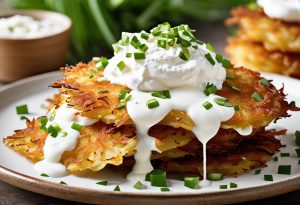 What Should We Eat?
What Should We Eat?
Because of the miracle of the oil, the tradition is to eat fried foods on Chanukah. The most well-known in America are potato pancakes, known as latkes. In Israel, the custom is to eat jelly doughnuts, called sufganiyot. (In recent years, the custom of eating sufganiyot has become more popular in America because, hey, who doesn’t like an excuse to eat jelly doughnuts?)
How Do I Play Dreidel?
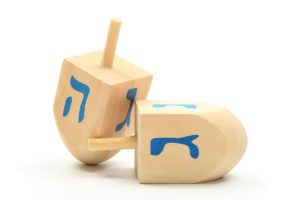 With the candle-lighting, presents, and fun foods, Chanukah is one of the most engaging holidays for children. Dreidel is another kid-friendly way to have Chanukah fun. A dreidel is a four-sided top decorated with four Hebrew letters: Nun, Gimmel, Hei and Shin. This stands for “Neis Gadol Hayah Sham” – “a great miracle happened there.” (An Israeli dreidel has the letter Pei for “Po” – “here.”) Every player antes up – preferably with chocolate coins – and the pot is won or lost as follows:
With the candle-lighting, presents, and fun foods, Chanukah is one of the most engaging holidays for children. Dreidel is another kid-friendly way to have Chanukah fun. A dreidel is a four-sided top decorated with four Hebrew letters: Nun, Gimmel, Hei and Shin. This stands for “Neis Gadol Hayah Sham” – “a great miracle happened there.” (An Israeli dreidel has the letter Pei for “Po” – “here.”) Every player antes up – preferably with chocolate coins – and the pot is won or lost as follows:
- If you spin a Nun, nothing happens. The next player goes. (In Yiddish, Nun stands for "nisht" - "nothing.")
- If you spin a Gimmel, you take the whole pot. (In Yiddish, Gimmel stands for "gantz" - "everything.")
- If you spin a Hei, you get half the pot. (In Yiddish, Hei stands for "halb" - "half.")
- If you spin a Shin (or a Pei), you must contribute to the pot. (Shin stands for "shtel" - "put in;" Pei means to pay.)
The Irony of Chanukah
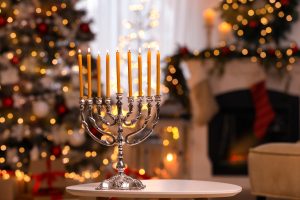 While Chanukah is certainly an important holiday, it is not as important as such Biblical Festivals as Sukkot and Shavuot. And other rabbinically-instituted holidays, like Purim and Tisha b’Av, are nowhere near as well-known as Chanukah. It’s obvious that Chanukah’s proximity to another winter holiday has given it a big boost over other equally-deserving Jewish occasions. Isn’t it ironic that the holiday celebrating the triumph over assimilation is the most popular because it’s seen as a Jewish alternative to Christmas?
While Chanukah is certainly an important holiday, it is not as important as such Biblical Festivals as Sukkot and Shavuot. And other rabbinically-instituted holidays, like Purim and Tisha b’Av, are nowhere near as well-known as Chanukah. It’s obvious that Chanukah’s proximity to another winter holiday has given it a big boost over other equally-deserving Jewish occasions. Isn’t it ironic that the holiday celebrating the triumph over assimilation is the most popular because it’s seen as a Jewish alternative to Christmas?
Far from ironic, it’s actually quite appropriate. For generations, Chanukah has been observed by many families and individuals as the last vestige of a Judaism otherwise lost to them. Chanukah has been the thing that kept them connected to the Judaism and enabled just one more generation to know they were Jewish. Many of these later found their way back into the fold. Hardly a Jewish Christmas, Chanukah has actually helped to stem the tide of assimilation.
